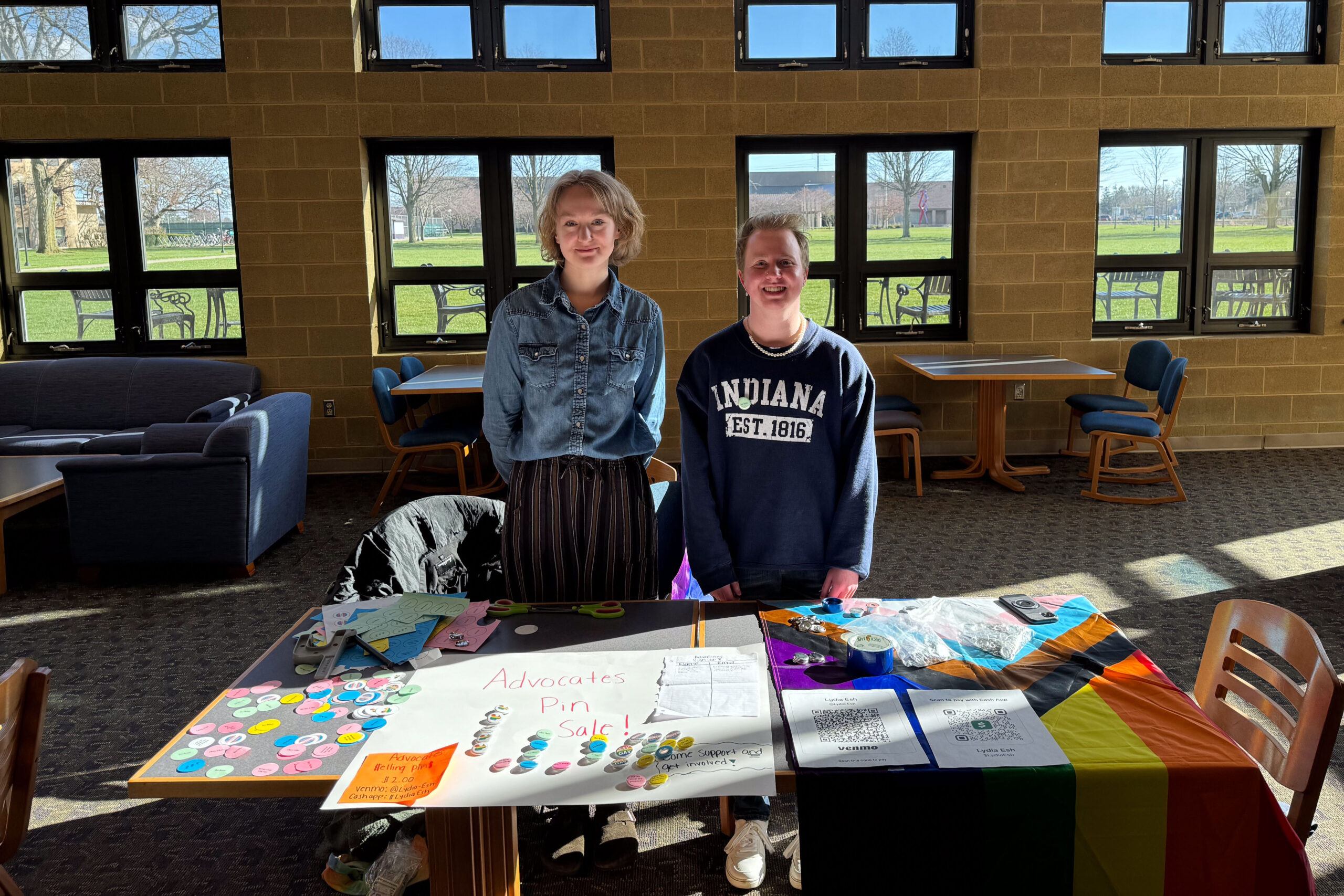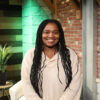Earlier this year, music from Beyoncé to Lady Gaga filled the Umble Center for the annual drag show. Behind the music and glamor was a group working to make it happen.
Advocates is an on-campus club that strives to create a safe community for LGBTQ+ individuals through events, advocacy work and education.Leaders this year include Karen Guerrero, a senior social work major, Lydia Esh, a junior social work major, Drew Smoker, a senior engineering physics major and Aiden Schloneger, a senior environmental science major.
In 2022, Schloneger became president but recently passed the role onto Peace Muhagachi, a junior sociology major, since he is graduating.
Reflecting on his journey, Schloneger said, “Advocates was a club that helped me a lot freshman year with struggles I had with students and faculty on campus. It’s a place where we can help other students with problems they’re having and bring queer and straight students together in a place where they can be friends and hopefully be respectful.”
Muhagachi echoed this sentiment, emphasizing the importance of it being a “safe space for queer students and all students to get together and have a sense of community.”
Esh and Smoker shared how Advocates help in addressing specific issues faced by LGBTQ+ students.
“We advocate for specific issues that LGBTQ+ students are having,” Esh said. “It can be scary as a student to advocate for yourself, so to have people in groups that can do that for you is important.”
As queer representation was scarce in Esh’s childhood, she finds it meaningful to have queer people in her life now.
Smoker has reembraced her bisexual identity, sharing, “I recently came out to my parents over spring break. I feel like because of Advocates and that community I’ve been able to do more. Participating in the drag show and having more adult queer people in my life has been powerful.”
Smoker has also witnessed Muhagachi and Schloneger’s dedication and advocacy despite little to no institutional backing.
“Advocates is changing the culture of Goshen College,” Muhagachi said. “There are a lot of blanket statements that talk about inclusivity and acceptance, but Advocates is one group that is putting those words into action.”
“When Aiden was starting, there was a lot of work done with housing inclusivity and getting the drag show to be done here,” she added. “[These are] steps of action that are putting the administration’s words into physical manifestation.”
One of the issues Advocates has brought attention to is surrounding SafeZone training.
Schloneger said, “Goshen College has said for quite a number of years that they’ve been doing SafeZone training with professors and staff, which has not been the case until this year.”
Despite efforts by previous leaders, Advocates still face difficulties in making training mandatory.
As Schloneger said, “We keep hitting brick walls,” and are being told no by various departments, from ICC to freshmen orientation.
Schloneger and Muhagachi pointed out that Advocates are the main ones pushing the SafeZone training forward — not the college. Leaders also plan and facilitate sessions, even though some are students in those classes.
Another issue that Muhagachi named surrounds visibility. “I would love the opportunity to have chapels dedicated to any one of the affinity groups, but in the past it’s been, if we want to do something, we can have it as a convo.”
While convocations are acceptable, Muhagachi said this can exclude a significant part of the campus.
Some other issues include equal treatment by professors and students, a lack of representation of queer identities among professors and inadequate housing options.
Smoker highlighted some of these instances saying, “I know of somebody who had a recommendation denied by a professor because of their queer identity.”
She mentioned how meeting Roy Jackson, an education professor and member of the LGBTQ+ community, was impactful.
As for future hopes, Muhagachi wants people to know that “Advocates is for everyone.”
“We can’t make it work without people, right? We all have this general agreement that we want safe spaces on campus where people can get together, have a good time and discuss issues together. We’re saying advocates is that thing.”
The club leaders also plan to continue the Drag Show and PIN pronoun sales annually even after they graduate.
Esh spoke to the art aspect of the Drag Show because “not only is it a fun show, but it’s a historically queer art form, a Black queer art form.”
“It’s so exciting to me to have that celebration on campus,” she continued. “And honestly, I think a lot of tolerance and acceptance grows from art. By seeing queer art forms, you’re opening your mind to other queer expressions.”
Muhagachi agreed that the drag show showcases queer culture in a positive light.
“As much as it is a fun event, it’s also educational,” she said. “We have local professional queens who come in and facilitate most of the behind-the-scenes stuff and host the show. I think it’s also important that Natosha [Salad, a local drag queen] is an alum of Goshen College, so I feel like the community is deeply embedded into all of these things that we do.”
Sales of pins featuring pronouns and other designs are happening this week at locations around campus. The sales are supporting events such as the drag show and membership meetings.
To get involved with Advocates, students and faculty should reach out to Schloneger or Muhagachi for further details.
“Don’t be afraid to talk with us,” Muhagachi said. “I would love to connect with freshmen or anyone who feels they need a group of people who understand what’s going on in their lives.”
“You don’t have to be out and proud or even part of the community,” Schloneger added. “We’re a welcoming space and we’re here for you.”




